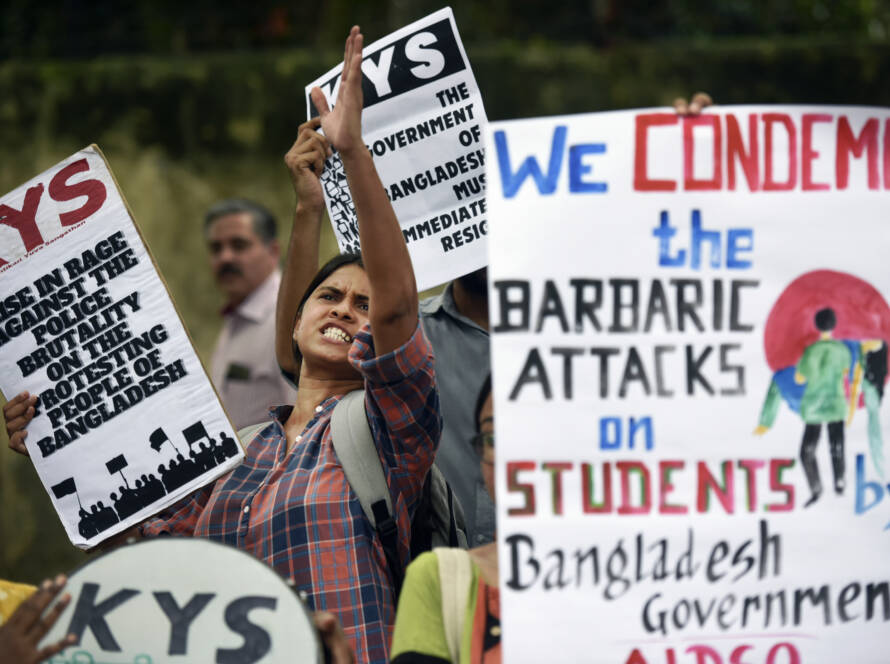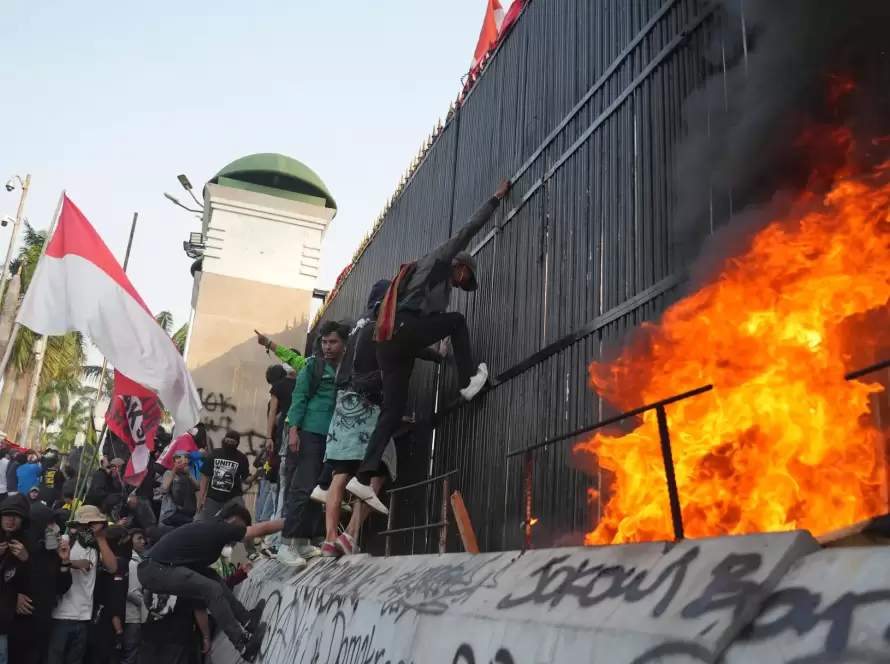By Britney Martil
The spotlight on women’s rights and the pervasive issue of violence against women has grown exponentially since the mid-1990s. Recognized as a formidable obstacle to equality, development, and peace, violence against women is deeply entrenched in historical inequalities between men and women.
At both international and national levels, unprecedented attention has been directed towards unraveling the layers of this complex problem, shedding light on the urgent need for systemic change.
The Declaration on the Elimination of Violence against Women, a landmark document, provides a comprehensive definition, encompassing any act of gender-based violence resulting in physical, sexual, or psychological harm or suffering to women.
This includes not only the direct acts of violence but also threats, coercion, and arbitrary deprivation of liberty, whether they unfold in public or private realms.
Sri Lanka, the pioneering nation that elected the world’s first female Prime Minister six decades ago, now finds itself grappling with a disheartening reality despite significant contributions from over half of its population being female, women continue to be treated as second-class citizens.
According to a recent report, 24.9% of women in Sri Lanka have experienced physical and/or sexual violence by a partner or non-partner, while 39.8% have endured various forms of violence and controlling behaviors. The survey underscores that violence is not a sporadic occurrence; it is a constant and long-term presence in the lives of many women, particularly those in the estate sector, where physical violence affects 37.9% of women.
The survey reveals a distressing overlap between sexual and physical violence, with women experiencing both at the hands of their partners. More concerning is the recurrent nature of these incidents, with over 65% reporting multiple occurrences. Shockingly, women are more than twice more likely to face violence from intimate partners than non-partners, and perpetrators often include family members or individuals known to the victims.
The consequences of violence against women extend beyond immediate injuries. A significant portion (28.9%) of victims reported sustaining injuries, with 18.7% requiring medical care. Sexual violence, in particular, has lasting effects on mental health, with 35.7% of victims contemplating suicide. Additionally, victims reported difficulties concentrating at work (9.2%) and being unable to work altogether (6.9%), showcasing the economic toll of violence.
In Sri Lanka, sexual offenses or violence against women are addressed through comprehensive legal provisions. Under Penal Code Section 363, rape is defined as engaging in sexual intercourse with a woman. Section 364 outlines severe penalties for rape, ranging from rigorous imprisonment for seven to twenty years, fines, and court-ordered compensation.
The law extends to specific circumstances, such as rape by public officers, individuals in positions of authority, or those associated with institutions like remand homes, hospitals, and instances involving pregnancy, minors, or mentally/physically disabled women. Section 364A delves into incest, criminalizing sexual intercourse between individuals with specified relationships, imposing stringent penalties.
Additionally, Section 345 addresses sexual harassment, encompassing assault, criminal force, or actions causing annoyance or harassment. Convictions under this section may result in imprisonment up to five years, fines, and court-ordered compensation.
According to the Prevention of Domestic Violence Act, Domestic violence encompasses both and any form of emotional abuse committed or induced by a relevant person within or outside the home environment, stemming from the personal relationship between the aggrieved person and the relevant person.
These legal provisions align with constitutional safeguards In Sri Lanka. Under Article 12(2) unequivocally asserts the right to non-discrimination for every citizen, prohibiting discrimination based on race, religion, language, caste, sex, political opinion, or place of birth. Notably, Article 12(4) reinforces this commitment by allowing for special provisions through law, subordinate legislation, or executive action, specifically tailored for the advancement of women, children, or disabled persons.
Simultaneously, the Women’s Charter of Sri Lanka, encapsulated in Section 16, amplifies the State’s dedication to safeguarding individuals from violence. The State pledges to take comprehensive measures to prevent violence against women, children, and young persons across various societal domains, including society at large, workplaces, family settings, and even in custody. The focus extends to addressing specific manifestations of violence such as rape, incest, sexual harassment, physical and mental abuse, torture, and cruel, inhuman, or degrading treatment.
When analyzing the South Asian context as a whole, South Asia grapples with an alarming reality as the prevalence of lifetime intimate partner violence in the region surpasses the global average by 35%. The intricate web of factors contributing to this grim statistic includes deeply ingrained socio-economic structures, patriarchal attitudes, and entrenched social norms dictating gender roles.
Violence against women and girls in South Asia not only inflicts deep emotional scars but also disrupts the entire spectrum of their needs—social, economic, physical, mental, and emotional. The tragic loss of human potential becomes evident as survivors often miss out on education, healthcare, employment opportunities, and meaningful participation in society. The global economic costs associated with this violence are staggering, estimated to be 2% of the global GDP, or a staggering USD 1.5 trillion.
Over the past decade, the World Bank has progressively integrated the fight against gender-based violence as a core area of engagement across various sectors and programs in South Asia. From agriculture and food to water and transportation, the World Bank is committed to addressing gender-based violence through context-specific policies and solutions.
Recognizing gender-based violence as a complex challenge, the World Bank’s approach prioritizes services that promote the health, wellbeing, and safety of women and girls. Initiatives include creating safe spaces, providing economic opportunities, and building infrastructure and systems that safeguard women and girls.
Illustrating this commitment, projects in Nagaland, India, focus on interventions in government-run schools to combat gender-based violence, while in Tamil Nadu, the Chennai City Partnership addresses the safety of public transportation for women and girls.
In Cox’s Bazar, Bangladesh, where displaced Rohingya face heightened vulnerability, the Health and Gender Support Project provides female survivors access to safe spaces and essential services. The inescapable reality of violence in women’s lives in South Asia. Social customs and attitudes that support violence are deeply entrenched at all levels, perpetuating a cycle of abuse.
The far-reaching consequences of gender-based violence in South Asia extend beyond immediate harm, creating a ripple effect that erodes fundamental rights and severely restricts choices across critical sectors. One of the profound manifestations of this impact is the emergence of the “missing women” phenomenon, a term coined to highlight the disproportionate reduction in the female population due to neglect, violence, and discriminatory practices.
The “missing women” phenomenon reflects not only the stark gender bias and violence but also the systemic neglect that results in premature deaths and a significant gender imbalance. Discriminatory practices, such as sex-selective abortions, further contribute to skewed sex ratios, undermining the very fabric of societal progress and gender equality.
Breaking free from the shackles of gender-based violence is not only a matter of individual rights but also a prerequisite for achieving sustainable and inclusive development. Efforts to address this issue must encompass comprehensive strategies that dismantle entrenched norms, empower women, and create an environment conducive to gender equality. Until then, the far-reaching consequences will persist, perpetuating a cycle of inequality that hampers the region’s overall progress and development.
Britney Martil is a law student at the Kotelawala Defence University.
Factum is an Asia Pacific-focused think tank on International Relations, Tech Cooperation, and Strategic Communications accessible via www.factum.lk.
The views expressed here are the author’s own and do not necessarily reflect the organization’s.


